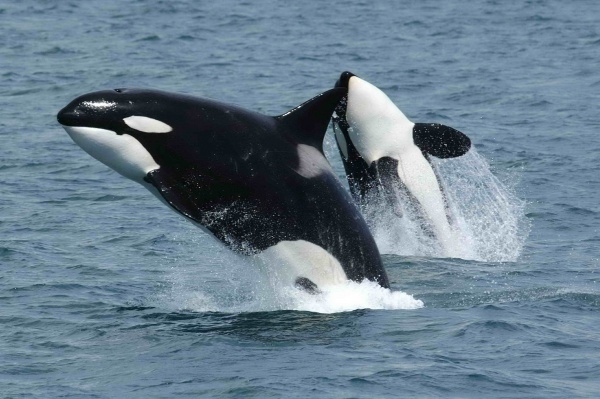Facts About Killer whale
The orca, commonly known as the killer whale, is a captivating marine mammal and the largest member of the dolphin family. These distinctive creatures have a diverse diet, consuming fish, seals, and other marine mammals. Orcas are highly social animals, typically living in matrilineal family pods where the social structure is centered around female relatives. As apex predators, they sit at the top of the oceanic food chain and inhabit all the world's oceans, with the exception of the Baltic and Black seas.
Scientifically named Orcinus orca, the orca is the sole species within the genus Orcinus. Despite their daunting reputation, wild orcas have never been documented causing fatal attacks on humans. Nonetheless, there have been incidents involving captive orcas and their trainers. Orcas are celebrated for their complex social behaviors, sophisticated hunting techniques, and unique vocalizations that vary between groups, suggesting a form of cultural expression.
The conservation status of orcas is concerning. Some populations face threats from dwindling prey populations, habitat degradation, pollution, capture for marine parks, and conflicts with human fisheries. The International Union for Conservation of Nature (IUCN) categorizes orcas as "data deficient" partly due to the possibility that different types of killer whales may constitute separate species. Various initiatives and regulations aim to protect these majestic beings.
Orcas hold significant cultural value for numerous indigenous communities, often featuring prominently in their art, mythology, and spiritual traditions. Over time, Western views on orcas have shifted dramatically—from seeing them as dangerous predators to recognizing them as symbols of marine conservation. The practice of keeping orcas in captivity remains controversial due to concerns about their well-being, stress, and reduced lifespans in such environments.
The popularity of whale watching has surged, providing people the opportunity to observe these magnificent animals up close. However, this activity also poses challenges, such as increased boat traffic that can negatively affect wild orca populations. Additionally, the history of whaling and commercial hunting has significantly impacted orca numbers. Presently, efforts are concentrated on protecting orcas and their habitats through conservation, research, and responsible tourism practices.

 Guatemala
Guatemala